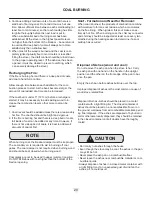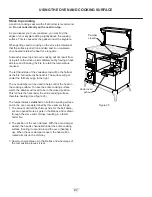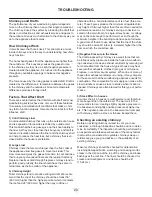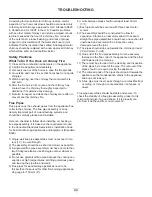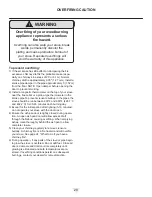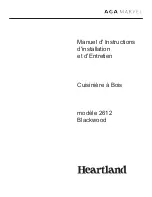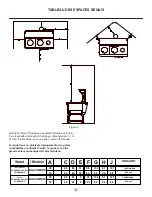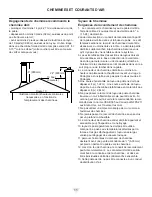
29
!
WARNING
Overfiring of your woodburning
appliance represents a serious
fire hazard.
Overfiring can also warp your stove, break
welds, permanently discolor the
plating and cause premature burnout of
your stove. Repeated overfirings will
void the warranty of this appliance.
To prevent overfiring:
1) If the air intake has little effect on dampering the fire,
excessive chimney draft is the probable cause (espe-
cially on chimneys in excess of 20’ or 6.1m). Normal
chimney draft is approximately 0.05" (1.27 mm). Install a
smoke pipe damper in the pipe approximately 5’ (1.52m)
from the floor. NOTE: Open damper before opening the
door to prevent smoking.
2) Install a magnetic thermometer on the top of your stove
near the flue collar or a probe-type thermometer in the
smoke pipe.To prevent creosote buildup in the pipes, the
stove should be run between 800°F and 900°F (426.7˚C
and 482.2˚C) for 30-45 minutes each burning day.
3) Except for the initial period after lighting (5-10 minutes),
do not operate your stove with the door open.
4) Ensure the ash pan door is tightly closed during opera-
tion. An open ash pan door will allow excess draft
through the firebox, causing overfiring. When emptying
ashes, clean thoroughly behind the ash pan to allow
complete closure.
5) Clean your chimney regularly to remove creosote
buildup. A chimney fire is a fire hazard and will overfire
your stove. See page 24, "What to do if you have a
chimney fire".
6) During operation, if any parts of the stove or pipe begin
to glow the stove is overfired. Do not add fuel. Close all
doors, dampers and draft controls completely until
glowing is eliminated and safe temperatures are re-
stored. If overfiring conditions persist on subsequent
burnings, contact your dealer for remedial action.
OVERFIRING CAUTION






